Fraudsters love their cars. They just don’t like to pay for them.
So they turn to CPNs (Credit Privacy Numbers) to create millions of new identities that they can use to get those cars for free.
This year, fraudsters will attempt to purchase over $13 billion in cars using fake identities – most of those that involve using the “CPN Method”.
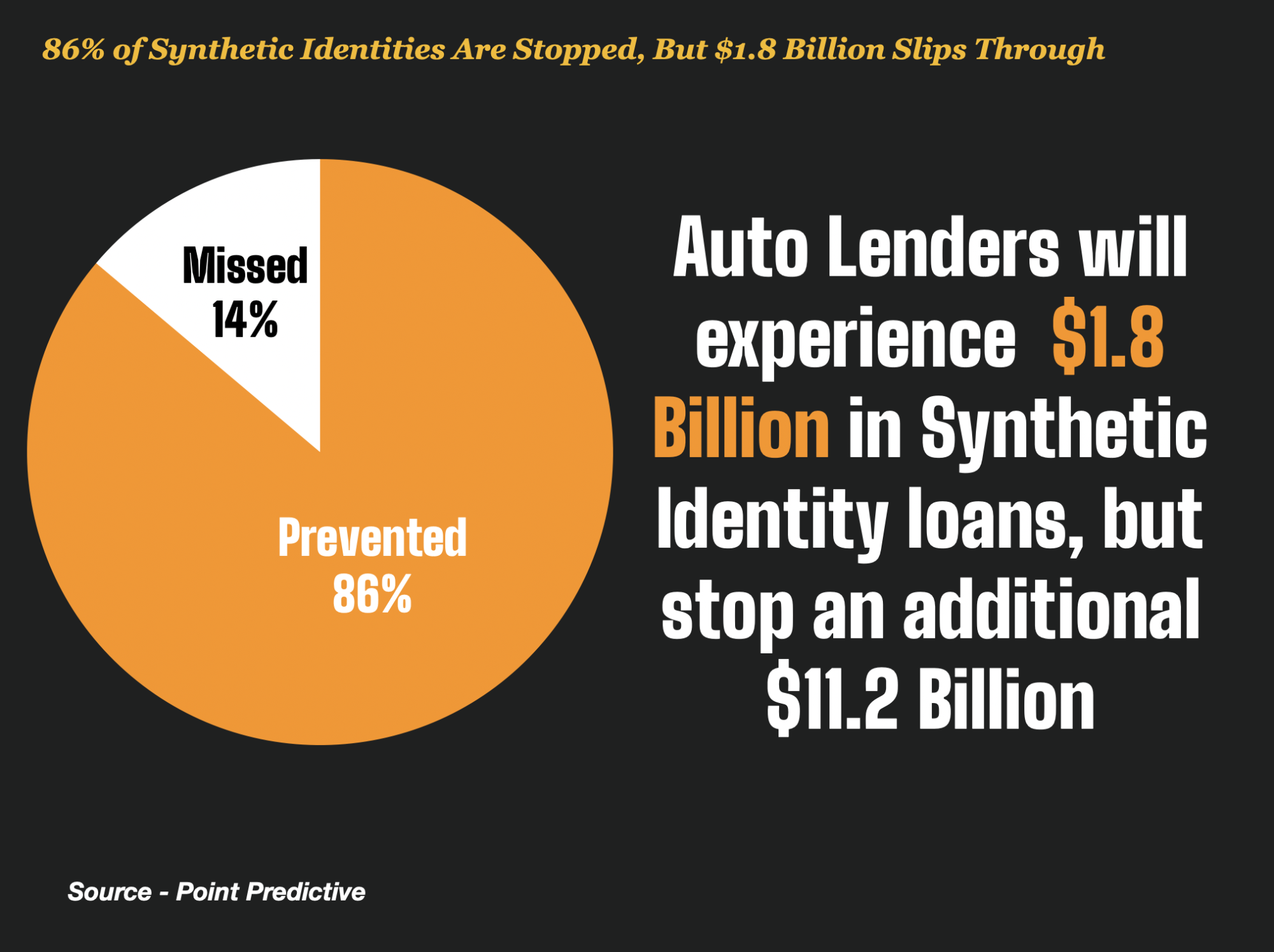
And once they have those cars, they resort to new ways to monetize them.
And it’s playing out in online marketplaces across the internet.
A Guy Named Al Has A CPN Car
A guy named Al is selling a car. But he doesn’t have the title.
Why does he not have the title? Because he or someone else financed the car using a synthetic identity that he created with a CPN.
It’s a technique that credit repair companies tout as a way to create a “brand new” credit profile.
This is that method. ?
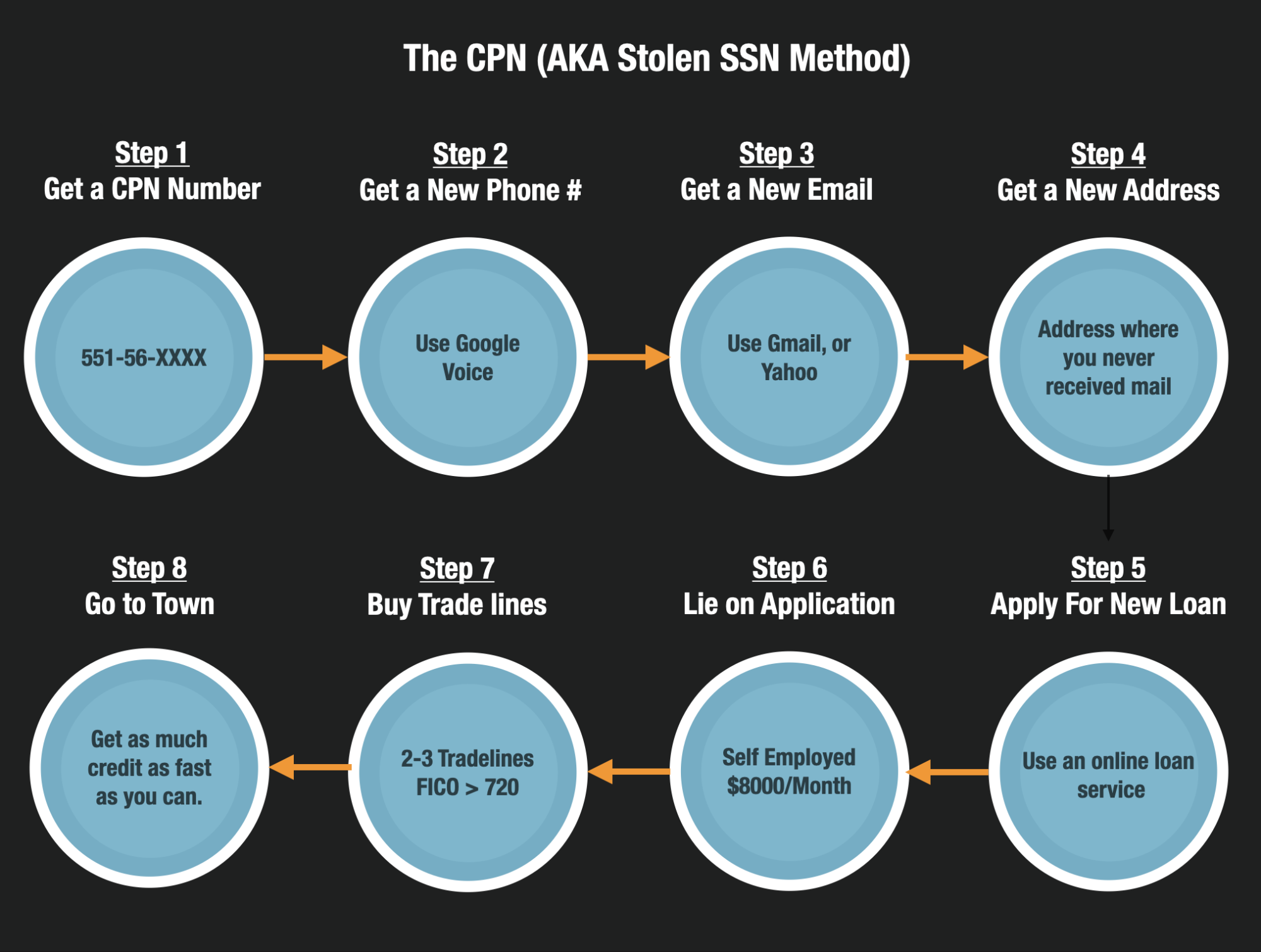
CPN Whip – Only $3,500 Or Best Offer. Don’t Ask Questions
Al wants to unload the CPN car. He hasn’t made any payments, and it’s likely that the repo guy is going to come looking for the car so he needs to get rid of it fast.
So Al heads over to one of the many Facebook groups specializing in connecting people selling cars without titles to idiots who will buy those cars.
One such group is called “No Title, No Problem Auto, ATV and MORE”

Now, there might be legitimate reasons a seller doesn’t have the title of a car – like it was lost, but there are sellers that are simply looking to unload cars that don’t belong to them.
So Al, goes to the Facebook group and posts an advertisement to sell his “CPN Whip”.
It’s a 2020 Dodge Charger Scat Pack with 47k miles that he is selling for only $3,500.
Typically that car would sell for $35,000, so it’s going for a 90% discount. What a deal!
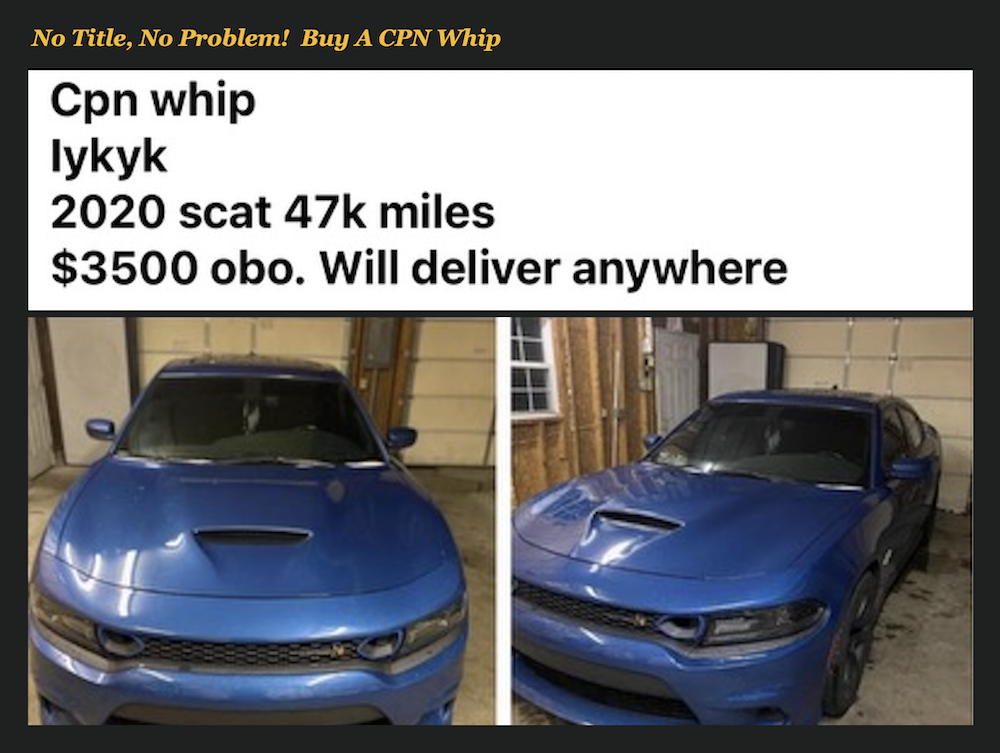
CPN Scat Pack Challenger – Don’t Ask A Million Questions!
And how about this CPN- Scat Pack Challenger? They claim it’s paid off and will come with a bill of sale but for some reason, they just can’t provide a title.
Don’t ask a million questions about this car!
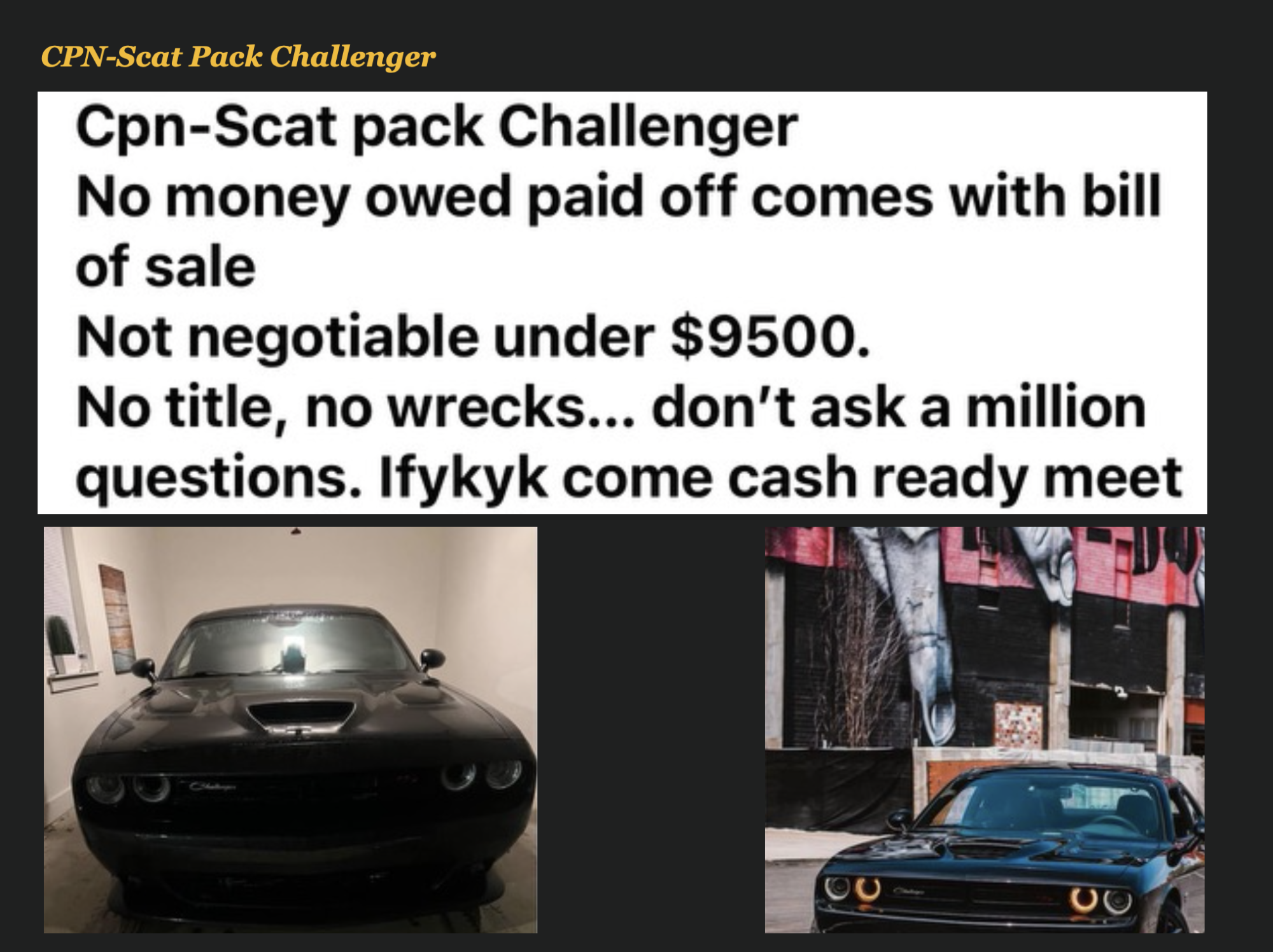
They Kno Who My Boy Is So We Dippin”
Sometimes after you get a car with a CPN the lender and the dealer figure out the scheme, and then you’re in trouble.
Here is another advertisement that the seller needs “gone ASAP” and they don’t want curious buyers asking 21 questions about the car.
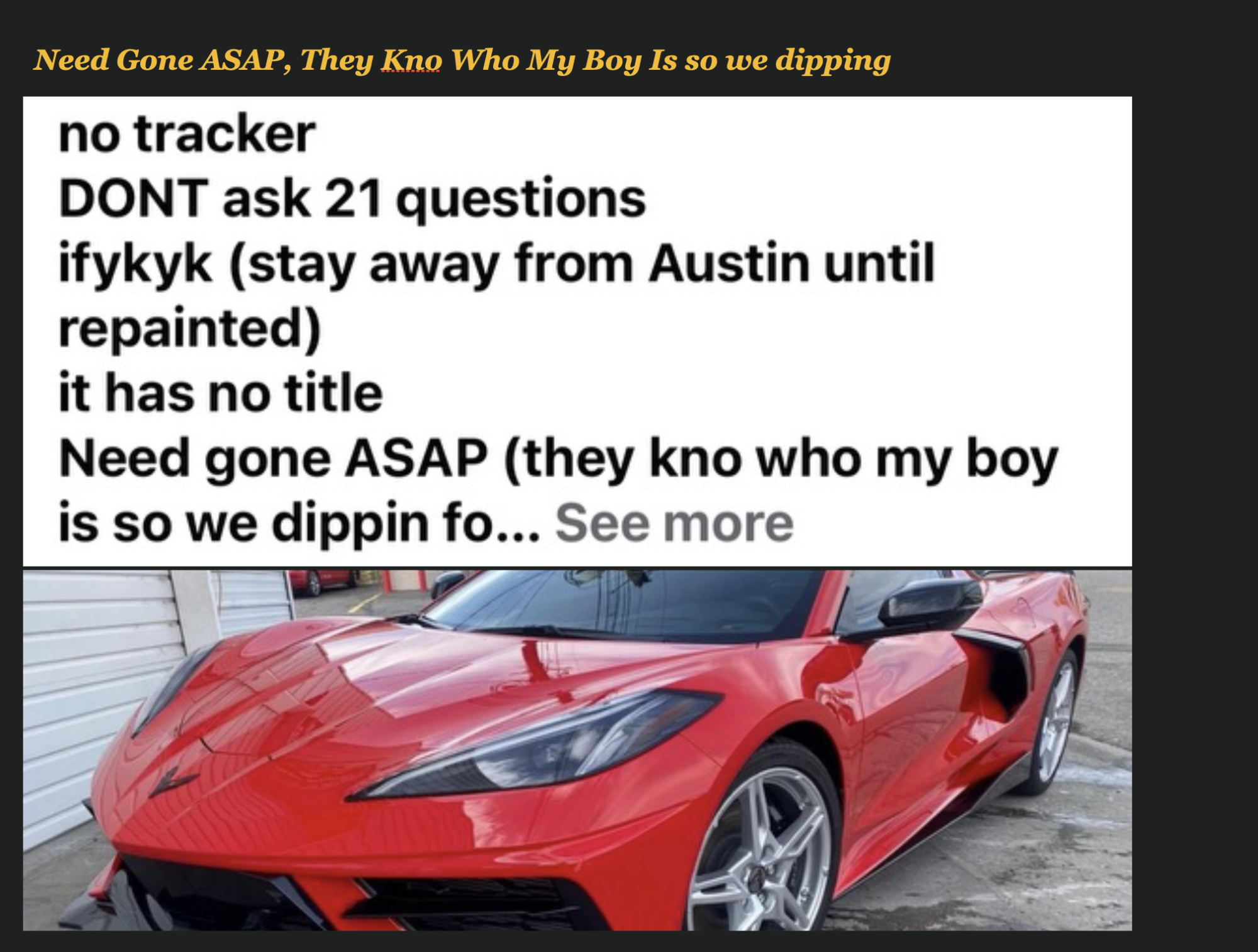
What Happens After The Car’s Are Sold?
So when someone buys these cars, what actually happens?
Their joyrides in these Dodge Challengers and Chargers are usually short-lived. And that’s because one of four things is going to happen.
#1 – You Got Scammed
The odds of getting scammed buying a car online – particularly from a fraudster – are pretty high. You will likely lose money without getting your hands on the car at all.
#2 – Seller Will Report Car As Stolen
Many buyers of these cars complain because the sellers scam them and report the car as stolen for fraudulent insurance claims or other scams they are running.
#3 – Seller Will Steal The Car Back From You
You are buying the car from thieves and fraudsters so what is preventing them from stealing the car back from you after you buy it. They probably keep a set of keys just for that very thing.
#4 – The Bank or Car Dealer Repo’s The Car
Many of these cars are equipped with GPS tracking and once the payments go into default, or the bank or dealer discovers the car has been purchased with a CPN, they will begin recovery efforts on the car.
And they are really good at finding these cars, wherever they end up!
#5 – You Get Arrested for Driving A Stolen Vehicle
Imagine the excuses the buyers of these cars have to give the police when they are pulled over for driving a stolen vehicle.
Odds are many of these buyers will experience just that if they get the car.
Monetizing CPN’s Is Just Another Reason Synthetic Identity Will Continue To Grow
TransUnion reported earlier this year that Auto Lending is experiencing record levels of synthetic identity fraud.
Over $1.7 billion in synthetic identity loans on the books hit auto lenders in 2023 making them the most targeted industry in the US for these deepfake identity loans.
With CPN monetization of these cars hitting social media, we can expect that the levels of synthetic identity in auto will only continue to fester.
What do you think? Send me a message if you see other trends here I should be looking at.



